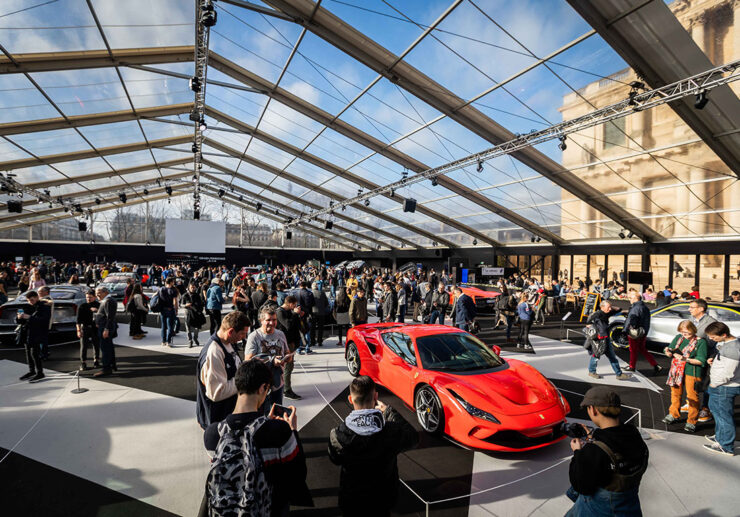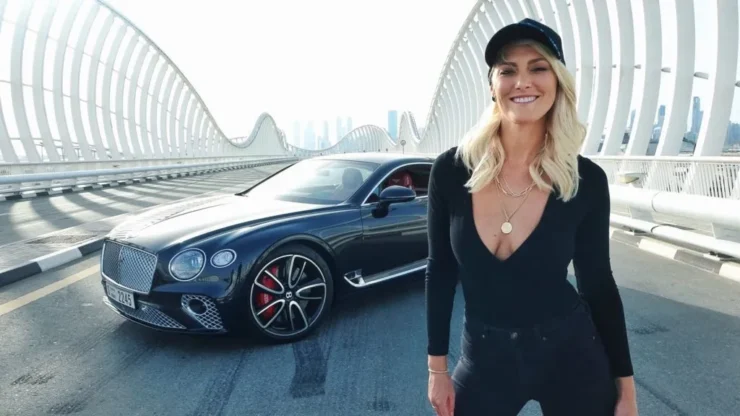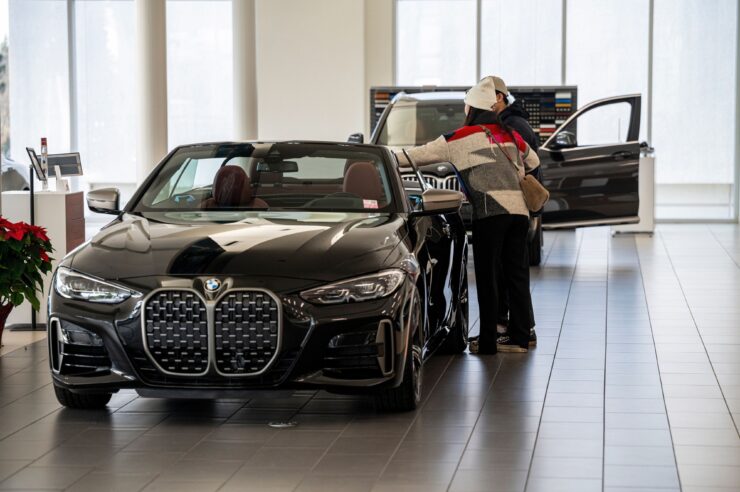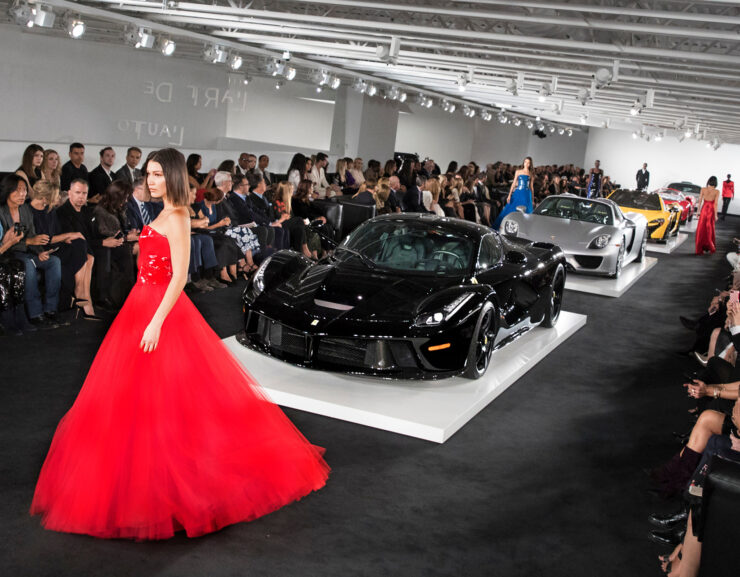Fashion and automotive design may seem completely different, but they share many similarities. Both industries are focused on creating innovative, functional, and aesthetically pleasing products that capture consumers’ attention. Many fashion designers have even ventured into the world of automotive design, creating stunning concepts that bridge the gap between these two worlds. Likewise, car manufacturers have partnered with fashion brands to create limited-edition vehicles that showcase the latest trends in design and technology. With the rise of electric and autonomous vehicles, the future of fashion and automotive design is set to be even more intertwined, creating exciting possibilities for both industries.
The Power of Trends: How Fashion Influences Car Color Choices

Fashion trends have always played a significant role in our daily lives, especially when it comes to our cars. The latest fashion trends often influence car color choices, reflecting our personality and style. From elegant and chic to bold and dramatic, car colors represent our identity. With ever-changing fashion trends, car manufacturers must keep up to date with the latest colors, offering a wide range of options to appeal to different demographics. The power of trends is undeniable, and when it comes to car color choices, it can make all the difference between standing out or blending in.
The Psychology of Color: Understanding the Emotional Impact
It is no secret that colors can have an emotional impact on us. From bright, cheerful hues to dark and mysterious shades, different colors evoke various emotions in people. Regarding cars, our chosen color speaks about our personality and lifestyle. Bold reds indicate confidence and sophistication, while calming blues suggest a laid-back attitude. Even subtle color changes can greatly affect how we feel when driving. For example, adding accent colors to interior trim and upholstery can add an extra layer of luxury and comfort. For more information on this topic, you can visit website linked here.
Historical Perspectives: Fashionable Car Colors Through the Decades
Throughout the decades, there has been a noticeable shift in the most fashionable car colors. In the 1920s and 30s, bold colors like red, blue, and green were popular. However, in the 1950s and 60s, pastel hues like mint green and baby blue dominated the scene. In the 80s and 90s, black and silver were all the rage, while the 2000s saw a return to brighter shades like neon green and electric blue. The color choices for automobiles often reflect the cultural and social trends of the time.
Celebrity Culture: How Celebrities Set Automotive Fashion Trends

Over the years, famous people have been known to set automotive fashion trends, from the type of car they buy to how they customize it. Think of the classic example of James Bond and his Aston Martin – that association has never left us. In today’s world, celebrities continue to showcase their cars on social media, and it is not uncommon to see fans flocking to dealerships, requesting the same models.
Whether Brad Pitt drives a Tesla or Taylor Swift cruises in her vintage convertible, we all want a piece of the celebrity lifestyle. So next time you are in the market for a new car, take a cue from Hollywood’s elite and let their style guide you.
Social Media and Influencers: Shaping Car Color Choices in the Digital Age
While you may think your car color preference is solely based on your taste, social media influencers have been subtly shaping these choices for years. With the rise of platforms like Instagram and TikTok, influencers with millions of followers have been promoting particular trends and styles, driving car manufacturers to release certain colors and models to meet the demand. As social media continues to evolve and influence our choices, it will be fascinating to see how car manufacturers adapt to this rapidly changing landscape.
Cultural Factors: Regional and Global Fashion Preferences in Automotive Design
Regarding automotive design, regional and global fashion trends are an important factor to consider. Different countries may have different color choices even within the same car model. For example, the Nissan Skyline GT-R has been sold in Japan for decades, but due to differences in cultural tastes, its colors vary greatly between markets. In Japan, vibrant blue and pink models are popular, while the US version is more likely to feature a classic gray or black hue. Similarly, cars sold in Europe may have more muted colors, like navy or burgundy, due to the region’s preference for subtle luxury.
Branding and Identity: The Role of Car Colors in Brand Perception

Car colors are also an important factor in branding and identity. When you think of a certain brand, its iconic car color will probably come to mind. From the bright yellow Lamborghinis to the classic black Audi, many brands rely on their colors to make a strong statement. Car colors can impact how people perceive a brand, and car manufacturers must carefully consider this when creating a new model. Colors often signify luxury, performance, or adventure, so the choice of hue is paramount to conveying the right message.
Future Trends: Predicting the Next Wave of Fashionable Car Colors
Predicting the next wave of stylish car colors can excite car enthusiasts and fashion lovers alike. With technology advancing and fashion trends constantly evolving, it is difficult to know what the future has in store. However, a few emerging trends may give us a glimpse into what is coming next.
One prediction is that bright and bold colors are here to stay, with hues like electric blue and fiery red continuing to make a statement on the road. Another trend is metallic and pearlescent finishes, adding a touch of glamour to even the most practical cars. As environmental concerns grow, we may see more eco-friendly colors, such as earthy greens and blues, become popular. Ultimately, the future of car colors is anything but dull, and fashion-savvy drivers can look forward to a colorful ride ahead.
Conclusion: The Ever-Evolving Relationship Between Fashion and Automotive Design
Throughout time, fashion and automotive design have had a close relationship. Car colors are integral to expressing our style and making a statement on the road. As we look towards the future, we can expect new trends and perhaps even some unexpected choices when it comes to car colors. Whether you want to stand out from the crowd or blend in with classic hues, there is a perfect shade. So, it is time to embrace the ever-evolving relationship between fashion and automotive design and make your mark on the world with a car color that’s uniquely yours.

